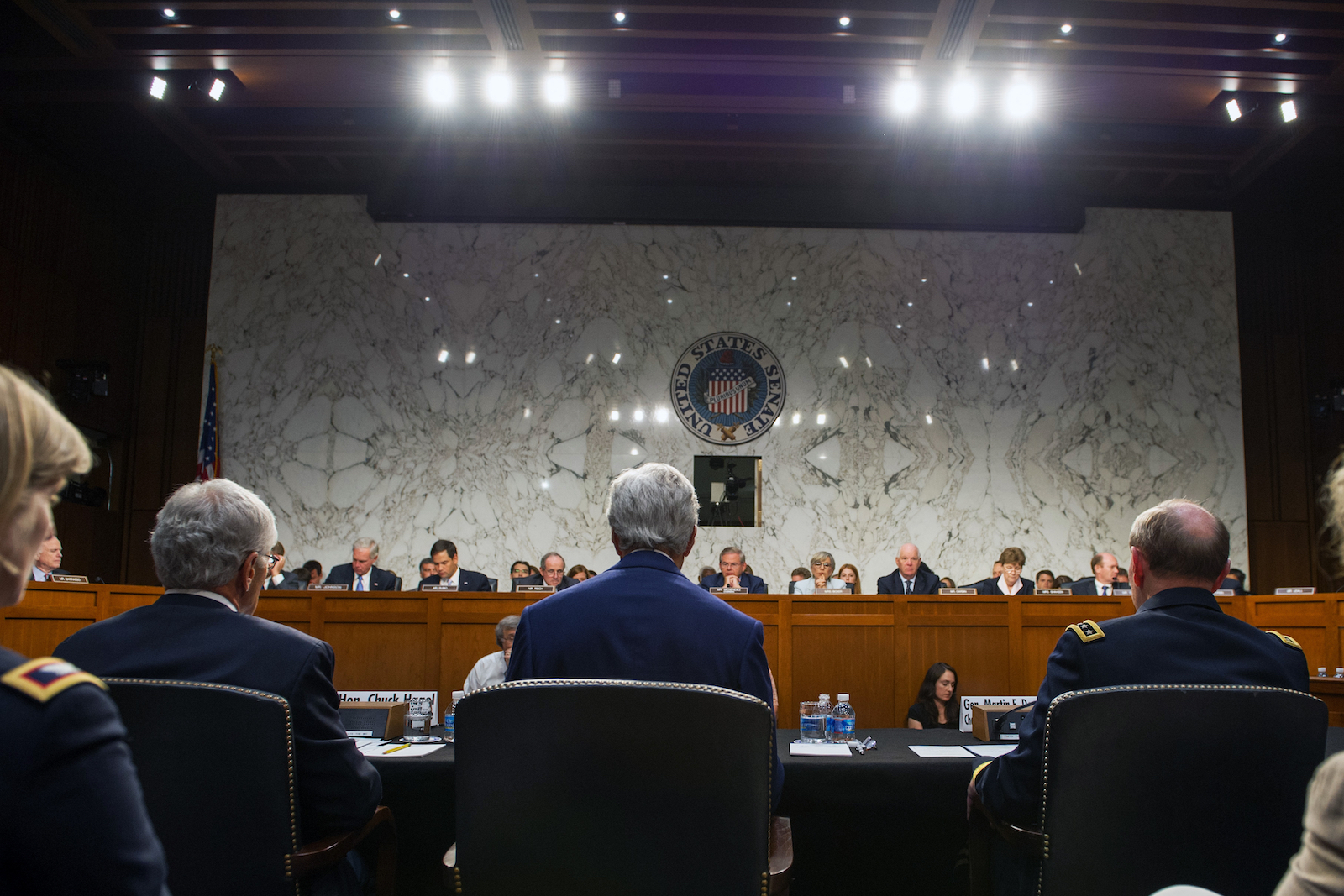
A Thoughtful Response is Needed in Syria
Secretary of State Kerry has found Syria guilty in the court of public opinion without offering any evidence to support his claim that the government of Syria was responsible for the chemical attack on the outskirts of Damascus several days ago. The U.S. and UK have sent warships off the coast of Syria while at the same time preparing to discuss the prospects for peace at a conference between the Syrian government and rebels in Geneva in October.
British Foreign Minister Hague says the UK would be compliant with international law if it bypassed the UN in order to proceed with an attack. Even George Bush had the good sense to have UN backing before he invaded Iraq. This ‘attack Syria’ hysteria is filled with contradictions and because of its implications, borders on madness. Why jump to any conclusions before/until the investigation is completed by the UN High Commissioner for Disarmament Affairs, Angela Kane? After more than two years of an absence of direct military response on the part of the West, what is the sudden hurry?
If the Syrian government is guilty, show the evidence and get a UN mandate before commencing any military action. Of course, a UN mandate is unlikely to occur since China and Russia have vowed to continue to oppose Western-sponsored resolutions against Syria. That is why Hague said what he said. So is the West now going to bypass the rule of law and procedures it has put in place when it is ‘inconvenient’? If so, what does that say about what may happen in future conflicts? That is a very dangerous road to go down.
Are any voices in the U.S. or UK governments urging consideration of the cost of action versus inaction being drowned out by policy hawks? With China and Russia firmly on the side of Damascus, and with Tehran ramping up its support of Assad, what exactly are the prospects for success from any limited military strike on Syria?
Hassan Nasrullah, the leader of Hezbollah, said in a speech last week that he would send his fighters more broadly to Syria to fight on behalf of the Assad regime if an attack from the West were to occur. What does this imply for Lebanon and Israel? Does the West wish to deliberately provoke greater regionalization of the Syrian conflict? That is likely what will happen in response.
Russia has said it has direct evidence that the rebels are responsible for the chemical attack. The Western press has been selective in what it has chosen to report about Syria more generally, and the chemical attack specifically, while certain Middle Eastern outlets have been more comprehensive in their coverage of the events in Syria. For example, alleged attacks on Syrian soldiers were not widely reported in the Western press two days following the alleged attack on civilians near Damascus. The conclusions of the UN report could be just the opposite of what the western press alleges. What would be the West’s reaction then? Would it matter, if an attack by the West had already occurred?
Can the West really afford to shoot first and ask questions later? The full-fledged regionalization of this conflict could result in violence that will span from Afghanistan to the Mediterranean. Lebanon and Iraq have already been sucked in. Russia’s last Mediterranean naval base in Tartus is highly symbolic to Mr. Putin. Will the Russians allow the West to waltz into Syria without a response? Admiral Dempsey, the Chairman of the U.S. Joint Chiefs of Staff, has repeatedly said that the U.S. is hesitant to fully arm some of the Syrian rebel groups, as they are against U.S. interests. So in whose long term interest would it be to ramp up arms to these rebel groups? Is something meaningful likely to be gained from firing off some cruise missiles or dropping bombs for a few days to display Western displeasure with Mr. Assad’s alleged crossing of Mr. Obama’s red line?
A new Reuters/Ipsos poll reveals that only 9 percent of Americans support military action in Syria, making the idea even less popular than the U.S. Congress at the present time. Does that actually matter to the President? Will the Hawks and warmongers in Congress get their way? The stakes are higher today than they were when a decision was being made to invade Iraq. At that time, neither a potential breach of international law nor a regional war in response was implied. President Obama would be well advised to continue his thoughtful approach to these issues. Level heads need to prevail at this critical time.

